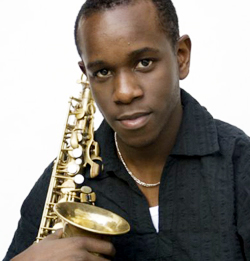
BY FREEMAN MAKOPA
IN the early hours of Monday March 15, 2010, a young vibrant voice fell silent. Sam Mtukudzi died in a car crash while travelling back home to Norton from Harare at night.
Their Tata pick-up truck, which was being driven by Mtukudzi’s sound engineer and manager Owen Chimhare, struck guard rails on the bridge just before the Kuwadzana Extension off-ramp along the Harare-Norton Road. So, death robbed the world of the talented artiste and arguably one of the best lyricists of all time.
Sam’s career got off to a flying start as he toured with his father, the late music icon Oliver Mtukudzi, on a campaign dubbed Nzou neMhuru Mudanga. Nzou Samanyanga was Tuku’s totem.
The tour marked the beginning of a new dawn for an artiste who was destined for greatness and could have been one of the most promising musicians in Zimbabwe had he lived to this day.
Under the guidance of his superstar father, Sam sang his way out of his father’s shadow and managed to establish his own sound, which had an Afro-jazz appeal.
The promising young artiste had his own band called Ay Band with whom he recorded his debut album, Rume Rimwe, in 2008 which was produced within two years and at that time it took the industry by storm.
When his father introduced him as “the future” to appreciative crowds at a British nightclub in late 2009, he managed to establish quite a sizeable fan base, unlike many up-and-coming artistes who usually ride on their parents’ coattails.
- Chamisa under fire over US$120K donation
- Mavhunga puts DeMbare into Chibuku quarterfinals
- Pension funds bet on Cabora Bassa oilfields
- Councils defy govt fire tender directive
Keep Reading
Rume Rimwe, although it was his debut album, gained traction, with the plug track Chii Chanetsa becoming a very popular hit and topping the music charts on PowerFM in 2008.
On this track, like his father, Sam engaged in social commentary concerning domestic violence from the perspective of the affected child. It is an in-depth view at the ills of a marriage gone wrong where all the possibilities point at a divorce but the children do not want to entertain the thought. Evidently, everyone is unhappy and all they can do is watch as it happens.
This is a song that can evoke emotions within one given the subject it tackles —that of material love. Amai focuses on a mother’s love and Sam was thanking his mother for her presence in his life.
It is a beautiful song about appreciation and should serve to teach us all to appreciate not only parents, but everyone who plays a significant role in our lives.
The music style on this album can be described as jazz with a mixture of Tuku music to spice it up. Tibatane is another song on this album which is a jazzy-love song. Sam praises his partner calling her chisikwa chaMwari (God’s beautiful creation).
Sam demonstrated his music craftsmanship by the way in which he made music, particularly his ability to pen heart-rending lyrics and his experiments with instruments. His instrumentation was described as astonishing, with the backing vocalists setting a high bar to match.
It reminds me that young musicians can also make such great music (but then again this was Mtukudzi’s son. Songs like Why Can’t We, Ngwara and Mazuva Mangani (which is somewhat the title track relating to the Shona proverb rume rimwe harikombi churu) are littered with advice on life. Besides the good music, there are strong messages contained within these songs that are reminiscent of olden day folklore.
It is without a single doubt that Sam’s music was more mature compared to his age and one would not let his age deceive them. His lyrical prowess herein lies within a poetic approach and there is an undeniable connection with Tuku’s influence here.
Some still anticipate that perhaps had he had his seatbelt on, he would have lived to see this day. His late father also worried that had he come a day earlier from an international trip as originally planned, he would have averted Sam and Owen from taking the unplanned second trip to the city to welcome him and his wife from South Africa.
Zimbabweans think if the country had ensured our roads are safe, the two would still be alive today, doing what they did best; creating smiles in a nation that badly needs upliftment of the soul. All we know for sure is no amount of grief and soul searching can bring Sam and his colleague back 10 years down the line.
With two remarkable posthumous albums — Musiiwa and Cheziya, several unreleased material and an almost palpable array of wonderful memories, Sam and his amazing legacy will never depart from Zimbabwe and her cultural landscape.
The most fascinating thing about the late Sam is what appeared to be a morbid fascination with death in the music he left behind. It appeared as if he knew that his days were numbered on Mother Earth, judging by the songs Famba Zvakanaka and Rwendo Rwauya, released posthumously, showing the young man bidding farewell to his loved ones as he embarked on the one way trip.
His is a painful story. With the offspring of many great musicians having failed to fit into their fathers’ shoes, Sam had managed to wean himself. His father Tuku had already started showing him the ropes, guiding his heir to the throne like a consummate cartographer.
Sam had the rare privilege of being guided along the same steps Tuku made, literally, through the Nzou Nemhuru Yayo project.











